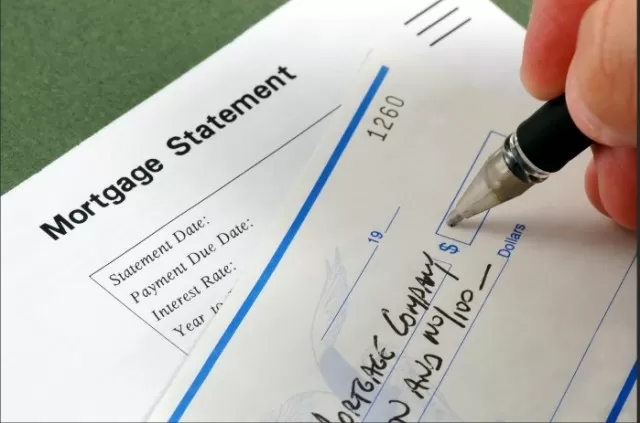Key Considerations for Early Mortgage Payoff. The notion of being entirely debt-free is often deemed an ideal financial state, and if you find yourself in a position to pay off your home mortgage, it’s natural to consider eliminating those monthly payments permanently.
However, before hastily parting with a significant sum of money to settle your mortgage, it’s essential to delve into the various aspects of paying off your mortgage early to make an informed financial decision.
Building a Solid Financial Foundation: Navigating Debt and Beyond

For individuals seeking a secure and prosperous financial future, liberating oneself from debt remains a pivotal objective.
Nevertheless, homeowners must exercise prudence and thoroughness in their approach to major financial choices, such as paying off a mortgage. Establishing a sound financial footing encompasses a range of crucial steps, such as formulating a comprehensive household budget, proactively planning for retirement, regardless of its distant horizon, and safeguarding against potential risks through adequate insurance coverage.
Whether it be protecting one’s property from damages or ensuring financial stability for loved ones in the event of an unexpected demise, having the right insurance can play a vital role in this journey.
The repercussions of inadequate financial planning can be profound, compelling individuals to extend their working years or leading to financial struggles during retirement.
As such, it is imperative to recognize that the window to secure one’s financial future is always open. Whether you’re just beginning your career or nearing retirement age, taking affirmative action to safeguard your economic well-being is a prudent choice.
In this era of economic uncertainty and evolving lifestyles, the importance of financial literacy cannot be overstated.
By equipping ourselves with the knowledge to manage money wisely, we empower ourselves to make informed decisions about debt, investments, and saving for the future. Understanding the intricacies of mortgage repayment options, evaluating the impact of interest rates, and exploring various retirement plans are all essential components of this financial journey.
Furthermore, embracing the concept of financial resilience goes hand in hand with securing one’s economic future.
By cultivating a diverse portfolio of assets, developing emergency funds, and engaging in continuous learning about personal finance, individuals can fortify themselves against unexpected financial shocks and ensure a more stable path ahead.
The road to a sound financial future may appear daunting, especially with the ever-changing economic landscape and personal circumstances.
However, seeking professional advice from financial advisors, utilizing educational resources, and learning from the experiences of others who have achieved financial success can provide valuable insights and guidance along the way.
Remember, the journey to financial security is not merely about immediate gains but rather a carefully crafted process that entails perseverance, discipline, and a willingness to adapt to life’s unpredictable twists.
By fostering a proactive approach and embracing the value of financial planning, individuals can shape a future that is not only economically robust but also filled with peace of mind and the freedom to pursue their aspirations.
Unlocking Financial Freedom: The Impact of Paying Off Your Mortgage
As homeowners diligently work towards paying off their mortgage, they set themselves on a path towards an increasingly stable financial future.
For many, the monthly mortgage payment is the most substantial financial obligation, and once it is fully settled, a newfound financial freedom awaits. The ripple effect of this achievement is far-reaching, as it opens up a world of possibilities and opportunities.
With the burden of the mortgage lifted, homeowners find themselves with significantly increased monthly cash flow.
This surplus income can be a game-changer, empowering them to allocate funds to other essential expenses that may have been sidelined due to financial constraints.
For some, the extra cash can mean the difference between being able to afford comprehensive health insurance or foregoing it altogether.
Prioritizing health and well-being becomes more attainable, providing a safety net in times of medical emergencies and ensuring access to quality healthcare.
Moreover, the dream of providing a college education for their children becomes more achievable for parents.
With the increased cash flow, setting aside funds for a college savings plan or contributing to educational expenses becomes a reality. This not only alleviates the financial burden on the parents but also offers young minds the prospect of a brighter and more promising future.
Beyond immediate necessities, the additional cash can be directed towards building a robust savings portfolio.
Establishing an emergency fund becomes more feasible, serving as a cushion during unforeseen circumstances or economic downturns. Moreover, homeowners can invest in various financial instruments to grow their wealth and secure their long-term financial goals.
Paying off the mortgage also liberates individuals from the anxiety and stress associated with debt.
A sense of relief washes over them as they free themselves from the weight of financial obligations, allowing for a more peaceful and fulfilling lifestyle.
While the journey to becoming mortgage-free demands discipline, commitment, and financial planning, the end result is undeniably rewarding.
As homeowners embrace this milestone, they discover newfound flexibility and financial stability that positively impacts their overall quality of life.
However, it is essential to recognize that financial prosperity is a continuous journey.
Responsible money management, wise investments, and ongoing financial education are key to making the most of the increased cash flow. By staying proactive and adaptable in their approach to finances, individuals can truly seize the opportunities that arise from having a mortgage-free home and pave the way for a brighter and more prosperous future.
Cautionary Note: Prepayment Penalty Awareness

When entering into a mortgage agreement, borrowers must exercise caution and thoroughly review the terms to avoid potential pitfalls.
While lenders profit from the interest they charge, some may be hesitant to lose out on future interest earnings. As a result, certain mortgage contracts may include a prepayment penalty clause.
This provision penalizes borrowers who choose to pay off their mortgage ahead of schedule.
If your mortgage contract contains a prepayment penalty, you should be prepared to pay a modest percentage (usually around 1-2%) of the outstanding loan balance to the lender if you decide to settle the mortgage early.
It’s essential to note that prepayment penalties generally apply only during the initial years of the loan, often within the first five years. Once this designated period has elapsed, the penalty typically expires, allowing borrowers to prepay without any additional costs.
Before making any decisions regarding early mortgage payoff, it is crucial to review the terms of your contract carefully.
If you find a prepayment penalty clause, take note of when it is set to expire. In some cases, waiting until the penalty expires can be a prudent move to avoid unnecessary costs.
As financial circumstances and goals vary from individual to individual, it’s wise to consider the potential impact of the penalty on your overall financial plan.
For borrowers seeking greater financial flexibility and the ability to pay off their mortgage without restrictions, choosing a mortgage without a prepayment penalty is a preferred option.
As such, conducting thorough research and consulting with a knowledgeable mortgage advisor can help you secure a loan that aligns with your financial objectives.
Remember, a mortgage is a significant financial commitment, and understanding its terms and conditions is paramount to making informed decisions.
By staying vigilant and aware of prepayment penalties or any other potential hidden costs, you can navigate your mortgage journey with confidence and work towards achieving your long-term financial aspirations.
Unleashing Significant Interest Savings: The Benefits of Early Mortgage Payoff
While paying off your mortgage early may not directly reduce the principal amount borrowed to purchase your home, it offers a remarkable advantage by eliminating the burden of interest payments.
The interest represents the additional cost that lenders charge for extending the privilege of borrowing money. By making early mortgage payments, you can spare yourself from this continuous accrual of interest.
The magnitude of potential interest savings is substantial and can make a significant difference in your financial outlook.
The amount you save largely depends on two key factors: the current amount of interest you are paying and the remaining term of your loan. If you are early in your mortgage term and have a considerable amount of interest left to pay, the savings could be substantial.
To better grasp the potential benefits, you can utilize a mortgage payoff calculator.
This powerful tool allows you to input your specific mortgage details, including the outstanding loan balance, interest rate, and remaining term. With this information, the calculator can provide you with a clear estimate of how much you stand to save by paying off your mortgage ahead of schedule.
The prospect of saving tens of thousands of dollars through early mortgage payoff can be incredibly enticing.
Not only does it free up a substantial amount of money in the long run, but it also accelerates your journey towards full homeownership.
Before proceeding with an early mortgage payoff strategy, it’s essential to consider your overall financial situation.
Assessing factors such as your emergency savings, retirement planning, and other outstanding debts will help you determine if diverting funds towards mortgage repayment is the most prudent choice.
Additionally, it’s important to ensure that your mortgage agreement doesn’t include any prepayment penalties.
As mentioned earlier, these penalties can offset some of the potential interest savings if applicable.
Remember, becoming mortgage-free is a milestone that provides financial freedom and peace of mind.
By actively working towards early mortgage payoff and seizing the opportunity to save on interest, you can embark on a journey towards a more secure and prosperous financial future.
Balancing Priorities: The Case for Prioritizing Retirement Savings

As enticing as early mortgage payoff may be, it’s essential to consider other long-term financial goals, with retirement savings taking a prominent position.
While diverting funds towards paying off your mortgage early can increase your current monthly cash flow, it might not always be the most strategic use of your money, particularly if you haven’t yet established a solid retirement savings plan.
Investing in retirement accounts, such as an Individual Retirement Account (IRA) or a 401(k) plan, offers distinct advantages that can potentially outweigh the benefits of early mortgage payoff.
By contributing to these accounts, your money enjoys tax-deferred growth, meaning you won’t be taxed on the investment gains until you withdraw the funds during retirement. This tax advantage allows your investments to compound over time, potentially resulting in substantial growth.
The comparison between the returns from retirement investments and the interest savings from early mortgage payoff is dependent on various factors, including your current mortgage terms, interest rate, and the duration remaining on the loan.
For individuals nearing the end of their mortgage term, with only a year or two left, the potential interest savings may not be as substantial as the gains achieved through retirement investments.
Moreover, securing your financial future during retirement is critical, as it ensures a comfortable and worry-free lifestyle during your golden years.
The sooner you start contributing to retirement accounts, the more time your investments have to grow and accumulate wealth over the long term.
Finding the right balance between early mortgage payoff and retirement savings is a personal decision that hinges on your individual financial situation, risk tolerance, and long-term goals.
Working with a financial advisor can provide valuable insights and help tailor a comprehensive financial plan that aligns with your aspirations.
In essence, while the allure of being mortgage-free is undeniable, it’s crucial to weigh the benefits of prioritizing retirement savings.
By proactively investing in retirement accounts and allowing your money to grow tax-deferred, you pave the way for a secure and financially rewarding retirement, ultimately making the most of your hard-earned money.
*The information is for reference only.